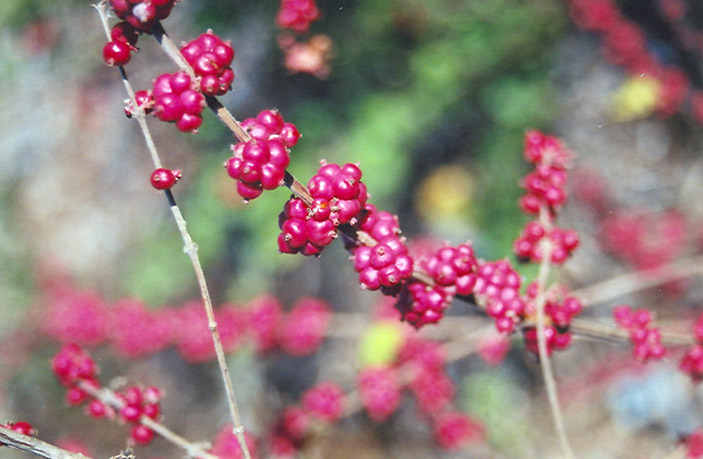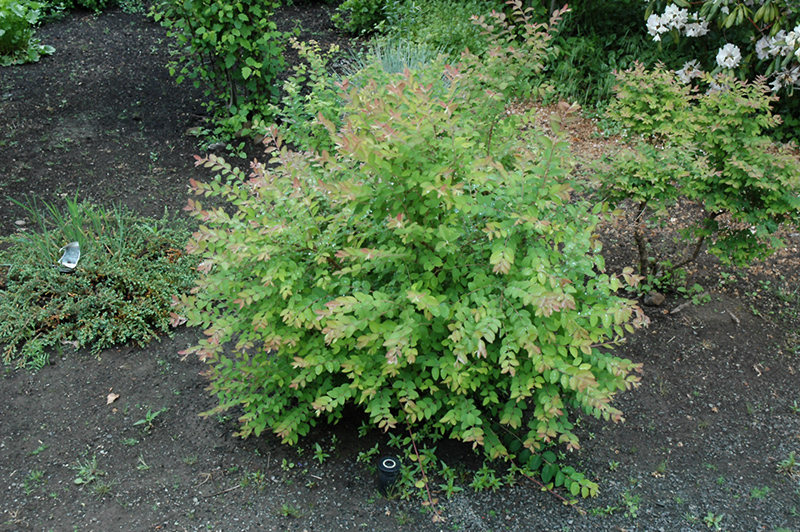Plant Finder
Height: 5 feet
Spread: 6 feet
Sunlight:
![]()
![]()
![]()
Hardiness Zone: 3b
Other Names: Indian Currant, Buckbrush
Description:
A versatile small shrub with small pinkish-yellow flowers in spring followed by showy clusters of scarlet berries in fall; arching branches and an interesting symmetrical leaf pattern, can grow somewhat bushy and unruly, ideal for massing; very adaptable
Ornamental Features
Coralberry is primarily grown for its highly ornamental fruit. It features an abundance of magnificent red berries from mid fall to late winter. It has bluish-green deciduous foliage. The oval leaves turn an outstanding red in the fall.
Landscape Attributes
Coralberry is a dense multi-stemmed deciduous shrub with a more or less rounded form. Its relatively coarse texture can be used to stand it apart from other landscape plants with finer foliage.
This shrub will require occasional maintenance and upkeep, and can be pruned at anytime. It is a good choice for attracting birds to your yard, but is not particularly attractive to deer who tend to leave it alone in favor of tastier treats. Gardeners should be aware of the following characteristic(s) that may warrant special consideration;
- Suckering
Coralberry is recommended for the following landscape applications;
- Mass Planting
- General Garden Use
- Naturalizing And Woodland Gardens
Planting & Growing
Coralberry will grow to be about 5 feet tall at maturity, with a spread of 6 feet. It tends to fill out right to the ground and therefore doesn't necessarily require facer plants in front, and is suitable for planting under power lines. It grows at a fast rate, and under ideal conditions can be expected to live for approximately 20 years.
This shrub performs well in both full sun and full shade. It is very adaptable to both dry and moist locations, and should do just fine under average home landscape conditions. It is not particular as to soil type or pH. It is somewhat tolerant of urban pollution. This species is native to parts of North America.


